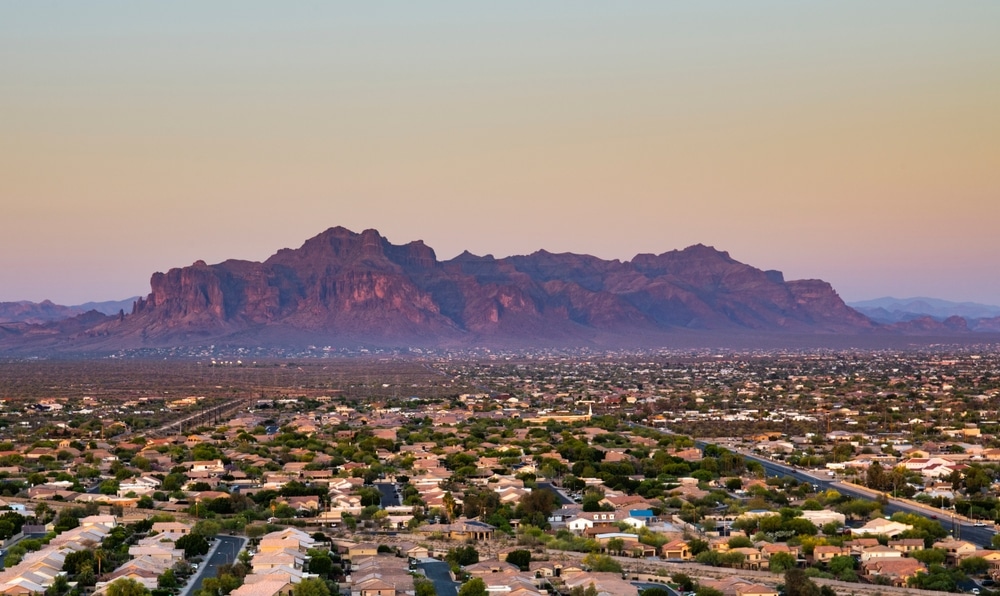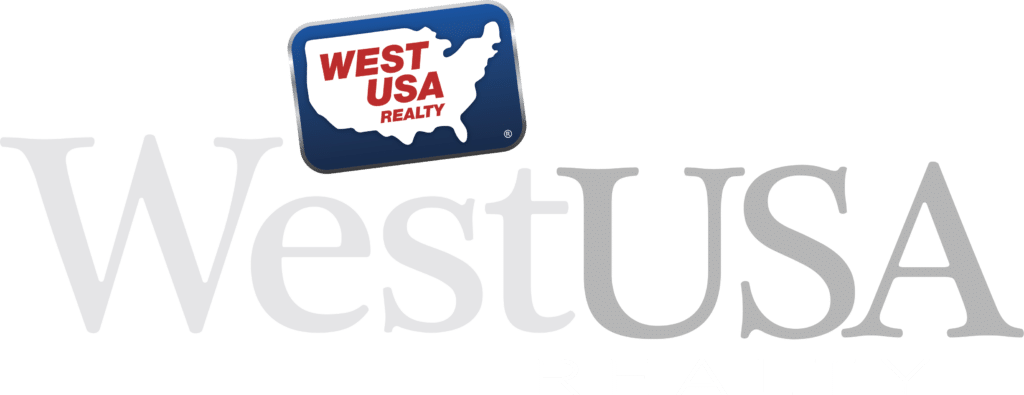
Mesa stands as Arizona’s third largest city, offering an impressive blend of historic neighborhoods, modern developments, and diverse lifestyle options for residents. The city’s roots date back to 1878 when Mormon pioneers established the settlement, giving Mesa a rich historical foundation unlike newer Phoenix suburbs. Mesa’s development has occurred in distinct phases, creating neighborhoods with distinctive architectural styles ranging from mid-century ranches to contemporary master-planned communities. The city expanded dramatically westward during the post-World War II boom, then eastward through the 1980s and 1990s, with newer luxury developments emerging in northeast Mesa. Visionary city planning has created distinct districts including the revitalized downtown area, the Fiesta District, and the growing Gateway corridor near Phoenix-Mesa Gateway Airport. Mesa’s unique character comes from its remarkable diversity, offering everything from affordable starter homes to luxury golf communities, historic districts to modern high-tech corridors.

Mesa's housing market offers exceptional diversity, with home prices ranging from the mid $200,000s for smaller properties to over $1 million for luxury estates in northeast Mesa. The city encompasses many distinct real estate submarkets, from historic downtown neighborhoods to newer master-planned communities like Las Sendas, Mountain Bridge, and Eastmark. Builders active in Mesa include national companies like Taylor Morrison, Lennar, and Pulte Homes, alongside custom builders creating luxury properties in premium neighborhoods. The real estate market has shown steady appreciation over the past decade, with particularly strong growth in revitalized central neighborhoods and premium eastern communities. Housing inventory varies significantly by area, with established neighborhoods typically having less availability than expanding eastern developments with ongoing construction. The price per square foot ranges widely from approximately $175 in central Mesa to over $300 in premium eastern communities like Las Sendas. Mesa's diverse housing stock provides opportunities for buyers at virtually every price point, from first-time homebuyers to luxury estate purchasers.

Mesa is primarily served by Mesa Public Schools, the largest school district in Arizona, offering diverse educational programs including International Baccalaureate, Montessori, and advanced STEM curriculums. Several highly-regarded charter school networks operate within Mesa, including BASIS, Great Hearts Academies, and Legacy Traditional Schools, providing additional educational options. Mesa is home to Mesa Community College, the largest of the Maricopa Community Colleges, offering associate degrees and certificate programs serving over 20,000 students. The innovative Mesa Arts Academy and Mesa Academy for Advanced Studies provide specialized public education options for students with specific interests and abilities. Higher education options include Arizona State University's Polytechnic Campus and the rapidly expanding Benedictine University Mesa, both offering four-year and graduate degrees. The city's educational landscape continues to evolve with new specialized programs emerging to prepare students for careers in technology, healthcare, and other growing sectors.

Mesa boasts an impressive parks system with over 2,280 acres of parkland, including the expansive Red Mountain Park and the scenic Riverview Park. The city manages an exceptional array of recreational facilities including aquatic centers, sports complexes, and the renowned Mesa Tennis Center. Cultural amenities include the world-class Mesa Arts Center, featuring four theaters, five art galleries, and numerous studio spaces for visual and performing arts. The Chicago Cubs' spring training facility at Sloan Park and Oakland Athletics' Hohokam Stadium bring Major League Baseball to Mesa every spring. Mesa's extensive trail system includes the scenic Consolidated Canal Path and connections to regional trail networks throughout the East Valley. The city maintains multiple senior centers, community centers, and specialized recreational facilities serving residents of all ages and interests.

Mesa features multiple shopping destinations including Superstition Springs Center, Village Square at Dana Park, and the outdoor Mesa Riverview shopping complex. The revitalized downtown area offers unique local shops, art galleries, breweries, and restaurants in a walkable historic setting. Diverse dining options span the city, from authentic international cuisine to innovative farm-to-table restaurants and family-friendly establishments. Entertainment venues include the Mesa Amphitheatre, Nile Theater, and numerous movie theaters, providing year-round performance and viewing options. The city hosts regular events including the Mesa Arts Festival, Merry Main Street holiday celebration, and weekly farmers markets in different neighborhoods. Mesa's central location provides easy access to additional shopping and entertainment options in neighboring Tempe, Scottsdale, and Gilbert.

Mesa benefits from excellent transportation infrastructure including direct access to three major freeways: US-60, Loop 202, and SR-87. The Valley Metro Light Rail system extends through western Mesa with six stations connecting to Tempe, Phoenix, and the broader metropolitan area. Commute times to downtown Phoenix typically range from 25-40 minutes depending on the starting point within Mesa's expansive boundaries. Phoenix-Mesa Gateway Airport serves the southeastern portion of the city, offering convenient regional flights and continuing expansion of services. The city maintains an extensive network of bike lanes and multi-use paths, supporting alternative transportation options for residents. Mesa's transportation master plan continues to evolve with ongoing improvements to support the city's growth and changing mobility needs.

Mesa's crime rates have declined significantly over the past decade, with many neighborhoods enjoying safety statistics well below national averages. The Mesa Police Department employs approximately 800 sworn officers and utilizes community policing strategies to enhance safety and resident engagement. The city has implemented numerous safety initiatives including enhanced street lighting, park security features, and public safety education programs. Many newer communities feature gated entrances, neighborhood watch programs, and modern security systems enhancing resident safety. The Mesa Fire and Medical Department operates 20 stations strategically located throughout the city, ensuring rapid emergency response times. The city's Office of Emergency Management maintains comprehensive plans for addressing natural disasters and other potential emergencies.

Mesa is home to several major medical centers including Banner Desert Medical Center, Mountain Vista Medical Center, and Banner Baywood Medical Center. The city offers specialized healthcare through facilities like Banner MD Anderson Cancer Center and Banner Heart Hospital, providing world-class treatment options. Numerous medical office complexes house specialists in virtually every field of medicine, reducing the need to travel for specialized care. Emergency response times average under five minutes in most Mesa neighborhoods, thanks to the city's well-distributed fire stations. Several urgent care networks operate multiple locations throughout Mesa, providing convenient options for non-emergency medical needs. The healthcare sector continues to expand in Mesa, with new medical facilities under development particularly in the growing eastern sections of the city.

Mesa's location provides exceptional access to outdoor recreation, with the Tonto National Forest and Superstition Mountains just minutes from eastern neighborhoods. The city features multiple golf courses including the nationally recognized Las Sendas Golf Club, Longbow Golf Club, and Dobson Ranch Golf Course. Water recreation opportunities abound with proximity to Saguaro Lake, Canyon Lake, and the Salt River for boating, fishing, and tubing adventures. The Desert Arboretum Park and Usery Mountain Regional Park offer excellent hiking trails with spectacular desert landscapes and wildlife viewing opportunities. Mesa's climate allows for year-round outdoor activities, with residents particularly enjoying hiking, cycling, and golf during the pleasant winter months. The city maintains numerous sports complexes hosting league play for softball, baseball, soccer, and other team sports for both youth and adults.

Mesa's community calendar features signature events including the Mesa Arts Festival, Mesa Easter Parade, and the Arizona Celebration of Freedom. The downtown area hosts regular events including Second Friday art walks, farmers markets, and seasonal celebrations throughout the year. Community involvement thrives through numerous volunteer organizations, neighborhood associations, and interest-based clubs active throughout the city. The Mesa Historical Museum and Arizona Museum of Natural History offer engaging exhibits and educational programs celebrating local history and culture. Religious communities are well-established in Mesa, with the spectacular Mesa Arizona Temple serving as a landmark for the city's significant LDS population. Youth sports leagues, performing arts programs, and educational enrichment activities provide numerous engagement opportunities for families.

Mesa enjoys the characteristic Sonoran Desert climate, with approximately 330 days of sunshine annually and minimal rainfall throughout the year. Winter temperatures typically range from 65-75 degrees during the day, creating perfect conditions for outdoor activities during this mild season. Summer brings sustained heat with temperatures regularly exceeding 105 degrees, though the low humidity makes conditions more tolerable than in humid regions. The "shoulder seasons" of spring and fall deliver ideal weather, with temperatures typically in the 70s and 80s, perfect for outdoor living. The minimal annual rainfall, averaging just nine inches, means few weather disruptions to daily activities or community events. Dramatic mountain views and spectacular sunsets characterize Mesa's landscape, with the Superstition Mountains creating a stunning eastern backdrop.

Mesa encompasses numerous homeowners associations, with regulations varying widely from minimal oversight in older neighborhoods to comprehensive guidelines in newer master-planned communities. The city's building codes emphasize desert-appropriate design, energy efficiency, and water conservation while ensuring safety and quality standards. Most of Mesa is not located within designated flood zones, though certain areas near washes may require specific insurance coverage. The city maintains comprehensive emergency management plans addressing potential natural disasters including monsoon storms, extreme heat events, and occasional flooding. Mesa's water resources are diversified through agreements with Salt River Project, Central Arizona Project, and the city's own well system. Zoning regulations promote appropriate transitions between commercial and residential areas while supporting ongoing revitalization efforts in established neighborhoods.

Mesa's economy has diversified significantly in recent decades, with growing healthcare, education, aerospace, and technology sectors. Major employers include Banner Health systems, Boeing, MD Helicopters, and Mesa Public Schools, providing thousands of jobs within city limits. The Elliot Road Technology Corridor has emerged as a significant employment center, attracting data centers, manufacturing facilities, and technology companies. Mesa's Gateway area continues to develop as an employment hub, anchored by Phoenix-Mesa Gateway Airport and surrounding industrial and commercial development. The city's Economic Development Department actively recruits businesses through incentive programs, streamlined permitting, and strategic infrastructure investments. Educational institutions including Arizona State University Polytechnic Campus and Mesa Community College collaborate with employers to develop targeted workforce training programs.

Property taxes in Mesa remain moderate compared to national averages, with an effective rate typically around 0.8% of assessed value. Utility costs reflect the desert climate, with higher summer electricity expenses balanced by minimal heating requirements during mild winter months. Homeowners association fees vary dramatically from approximately $50 monthly in some neighborhoods to over $300 in premium communities with extensive amenities. The city offers numerous programs to assist first-time homebuyers, veterans, and qualified homeowners with housing costs and improvement projects. Mesa maintains responsible financial management with strong municipal bond ratings, allowing for continued infrastructure investment without excessive taxation. The diverse housing market provides options at virtually every price point, making Mesa accessible to households across the income spectrum.

Mesa operates under a council-manager form of government with a directly elected mayor and six district representatives on the city council. The city provides comprehensive services including police, fire, parks and recreation, libraries, museums, and utilities with generally high resident satisfaction. Mesa's public library system includes the Main Library and four branches distributed throughout the city, offering extensive physical and digital resources. The Parks, Recreation and Community Facilities Department manages more than 130 parks, 13 community and recreation centers, and numerous specialized facilities. Mesa maintains its own water and gas utilities, providing reliable service while generating revenue that supports other municipal services. The city's strategic planning process emphasizes sustainable growth, infrastructure maintenance, and quality of life enhancements for residents throughout Mesa's diverse neighborhoods.


Copyright © 2025 Arizonan. All rights reserved.